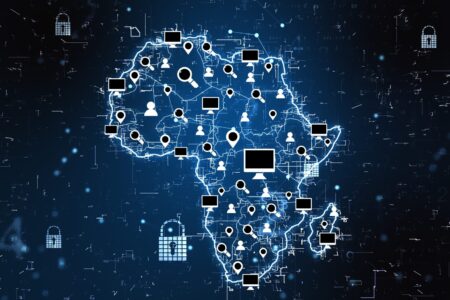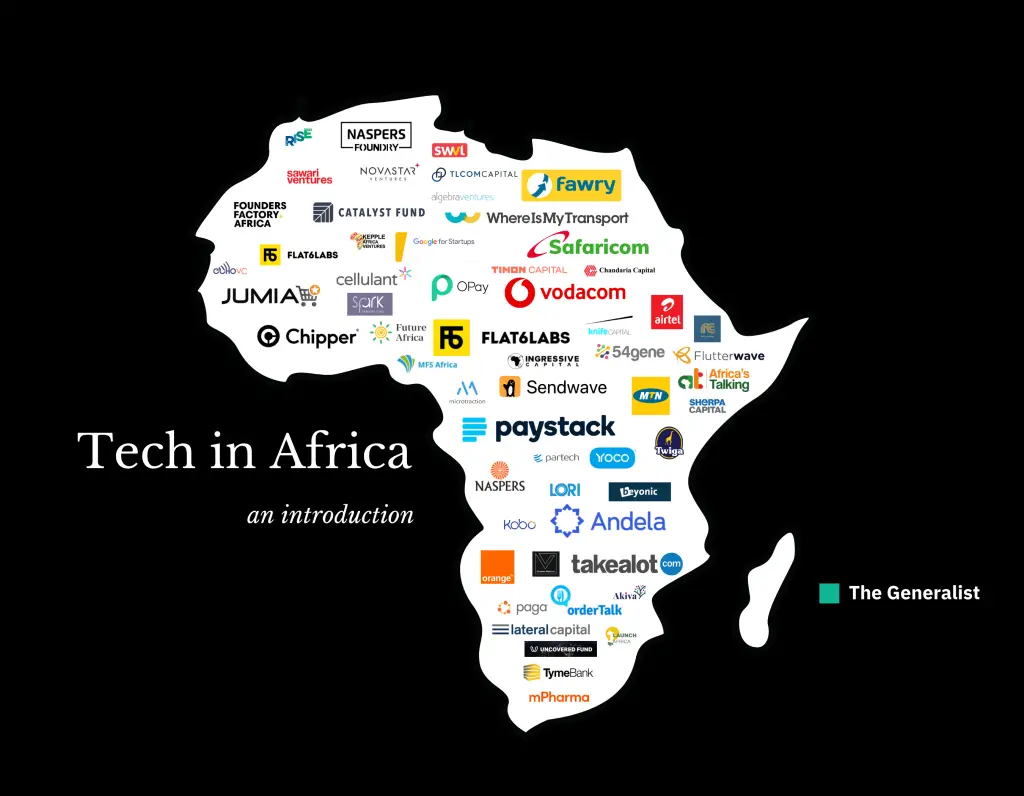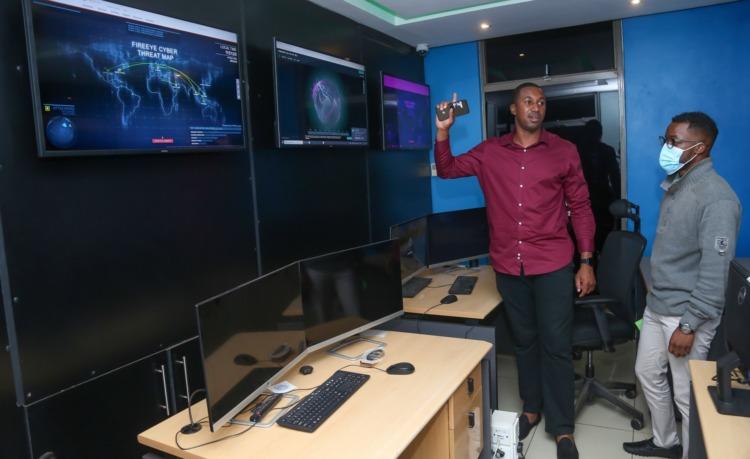- Africa’s new dawn: the rising role of digital and AI in agriculture
- Can Dangote Refinery Transform Africa Energy Ambition
- Gallup Survey: 80 per cent of Kenyan Workers Are Disengaged and Seek New Opportunities
- Madagascar Man Freed from 5KG Tumor After 15-Year Struggle
- How women in Africa are perceived and treated
- Sugar consumption in Kenya to Increase to 1.23 Million Tonnes
- Can Somalia and Turkey Oil deal Bring Change in Somaliland
- Remittances to Kenya dropped to $371.6 million in June, marking a six month low
Browsing: Cybersecurity
- The 2024 Sophos Threat Report shows data theft is the focus of most malware targeting small and medium businesses.
- Email attacks have moved away from simple social engineering toward more active engagement.
- According to the World Bank, over 90 per cent of the world’s businesses are small- and medium-sized organisations.
Cybercriminals are increasingly targeting data in a new trend in the online security space the 2024 Sophos Threat Report has shown. The report by cybersecurity services firm Sophos sheds light on the dangers faced by small- and medium-sized businesses (SMBs) in the digital landscape.
The 2024 Sophos Threat Report titled “Cybercrime on Main Street” underscores the significant threats looming over SMBs, focusing on the year 2023. According to the report, 50 per cent of malware detected targeting SMBs comprised keyloggers, spyware, and stealers – malicious software designed to steal data and credentials.
Cybercriminals employ these tactics to …
- Africa suffers substantial financial losses due to cyberattacks, estimated to exceed $3.5 billion annually.
- The increasing interconnectedness and flow of people, goods, and information across the region, will intensify cyber risks.
- Developing local cybersecurity capabilities, investing in digital skills development will be critical in tackling threats.
An analysis by global management consulting firm Kearney is calling for urgent efforts for Africa to develop a comprehensive and forward-looking approach to tackle cybersecurity threats. The June 20th report: Cybersecurity in Africa: A Call to Action, emphasizes the growing scope of cyberthreats and the need to ensure Africa’s unhindered entry into the digital economy.
According to Rob van Dale, a Partner at global management consultancy Kearney, “Africa needs a comprehensive agenda to address its low cyber resilience, deal with the scale of cyber threats, and ensure Africa’s unobstructed leap into the digital economy.”
A four-point agenda
The report proposes a four-point agenda that …
Ugandan President Yoweri Museveni has signed the Computer Misuse (Amendment) Act, 2022, which criminalizes unauthorized access to data and prohibits sharing data relating to legal minors without authorization from parents or guardians. The law also prohibits sending or sharing false, malicious and unsolicited information.
The announcement was made on Thursday, October 14, 2022, by the Presidential Press Unit (PPU). According to the PPU, the president signed four bills into law: the Physical Planners’ Registration Act, the Kampala Capital City (Amendment) Act, the Mining and Minerals Act, and the Computer Misuse (Amendment) Bill.
One legislator introduced the Computer Misuse Amendment Bill 2022 to Uganda’s Parliament and passed it on July 19, 2022.
The Uganda Computer Misuse Act was enacted earlier in 2011 to enhance safety and security in the digital arena by preventing unlawful access, abuse or misuse of information systems including computers and securing the conduct of electronic transactions.…
Phishing is a strong attack method because it is done on a large scale. It stressed that by sending massive waves of emails under the name of legitimate institutions or promoting fake pages, malicious users increase their chances of success in their hunt for innocent people’s credentials.
The article explained that phishers deploy a variety of tricks to bypass email blocking and lure as many users as possible to their fraudulent sites, adding that a common technique is HTML attachments with partially or fully obfuscated code. It stressed that HTML files allow attackers to use scripts, and obfuscate malicious content to make it harder to detect and send phishing pages as attachments instead of links.
According to a recent Interpol report, about 90 per cent of African businesses are operating without the necessary cybersecurity protocols and, therefore, are exposed to cyberattacks. The report also noted that there were more than …
- A sense of well-being encompasses a wide range of factors, including access to education and employment, as well as the lack of armed combat or threats
- Digitization has provided a cheap, secure source of finance to populations in need and improved government transparency in countries where graft and corruption are a huge concern.
- Technological change has also resulted in increased productivity which has in turn improved African’s standards of living
When we think about the quality of life, the first thing that comes to mind is the degree to which an individual is healthy, comfortable, and able to participate in or enjoy life events.
A sense of well-being encompasses a wide range of factors, including access to education and employment, as well as the lack of armed combat or threats.
It is also relative, subjective and has intangible components, such as spiritual beliefs and a sense of belonging.
Rapid
SMBs share a similar technology adoption trend to SACCOs exposing them to Cybersecurity threats that are detrimental to their growing business.
Speaking during the launch of a cyber security sensitisation campaign, Dimension Data East and West Head of Managed Security Services Dr. Bright Mawudor said there’s a looming misconception that threat actors are only focusing on large enterprises yet small businesses equally possess sensitive data that is lucrative to attackers.…
Liquids Intelligent Technologies has reported that over 90 percent of IT decision makers across South Africa, Kenya and Zimbabwe have accelerated their Cyber Security due to the substantial emergence of digital ways of working.
The study established some of the main concerns about Cyber Security threats and the most significant impacts of digital breaches on an organisational level.
A critical insight from the research suggests that 79 percent of businesses from all three countries attribute an increase in Cyber Security threats to the advent of remote working.
Data breaches like data extortion, data leakage and data disclosure constitute almost 71% of the cyber-attacks for Kenyan businesses, and over 70% of South African and Zimbabwean organisations consider email attacks like Phishing the most prominent digital threats.
The participants from the research also indicated an increased consumption of Cloud-based services this year, with the numbers being as high as 96% in South …
The penetration of Information Communication Technology use in Africa has grown tremendously in the new millennium. Close to 600 million (43%) Africans now have access to the internet, up from 4.5 million in 2000. This growth in the use of ICT has brought with it a rise in illicit online activities.
The information found on the internet is largely unfiltered and this exposes the population to fake news and manipulation by scammers. One common scam is the ‘419’ email scam, which derives its name from Nigeria’s criminal code section 419. These scams were common in Nigeria in the 1990s’ and are also referred to as the advance fee scam. It basically involves promising someone a large sum of money if they can pay a certain processing fee.
Even though the tactic may seem ineffective to the techno savvy who are very aware of this old trick, it can be very …
The rise of digital technology presents a myriad of new inventions and conveniences and changes how people interact, communicate, and do business.
The immense benefits of technology carry with them cybersecurity risks. Given the complex and sometimes obscure nature of cyber threats, they are usually difficult to comprehend, identify and control.
Issues of outright theft, hacking, piracy, identity theft, and information misappropriation, among other cyber-related activities, come to the fore when it comes to cyber risks. In addition, national security risks exist in the digital space that poses a significant threat.
According to consulting firm Ovumone, it is estimated that the end of 2022 will see over a billion people having access to the internet. The rising internet access and improved digital usage open up the continent to increased online criminal activity.
…“Cybercrime is shifting towards emerging economies. This is where the cybercriminals believe the low-hanging fruit
Both small and big companies are at risk as the number of attacks will increase during this lock down period. All over the world businesses are urged to embrace online engagement with their customers, and sale of their products.Banking security experts are advising that businesses of all sizes need a plan to defend cybersecurity threats. The following are tips on how to protect data, assets and transactions with any business—small or big, and in any sector.
Cyber-attacks may be launched over the internet or rely on someone with physical access to a company’s premises by using: emails that contain malicious hyperlinks and attachments with messages that often look like they came from a colleague and are commonly referred to as Phishing attempts, or legitimate-looking websites that are set up to capture users’ login credentials, or social engineering to convince unsuspecting employees to reveal confidential information or credentials, or mobile apps …













